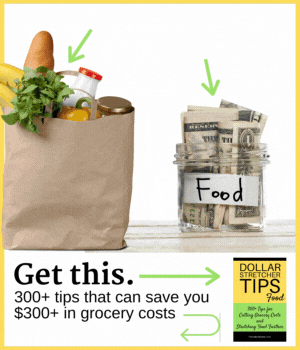Should You Consider Starting a Vegetable Garden?
by Laura Foor

Food prices just keep rising. Should you consider starting a vegetable garden to save on produce costs? Use these tips to easily get started.
Yay! It’s springtime! It’s a time of year we all look forward to as it represents a time of transition from cold to warmer weather.
Spring also represents a time of newness, making it the perfect time to start thinking about doing some spring planting. Some of the more favorite vegetables growers tend to plant in the spring include lettuce, carrots, radishes, broccoli, beets, onions, peas, cucumbers, squash, tomatoes, and peppers.
Growing your own food in your own garden can make for a very satisfying experience. This a great way for you to have a few fresh and healthy foods right at your fingertips, and you’re going to save some money off your grocery bill. Nice! If you happen to find that you truly enjoy growing your own food and would like to continue to do so, you could even put this money into a “My Garden” jar for future garden expenses.
So, have you started prepping for your backyard garden yet?
How To Start
Many people are surprised to learn how easy it can be to start a backyard garden. Basically, you need an area for planting, good soil, seeds, and some time to take care of your new garden.
It’s important to choose a sunny location (six hours of sunshine minimum) and one that drains properly. And start small. You don’t want to take on too much or you may feel overwhelmed, which takes all the fun away.
You deserve a comfortable retirement.
That's why our weekly newsletter, After 50 Finances, is dedicated to people 50 years and older.
Each week we feature financial topics and lifestyle issues important to the 50+ crowd that can help you plan for and enjoy a comfortable retirement even if you haven't saved enough.
Subscribers get The After 50 Finances Pre-Retirement Checklist for FREE!
Sign up today for your comfortable retirement.
We respect your privacy. We hate spam. Unsubscribe at any time.
What To Grow?
First, you’ll need to find out what types of foods grow well in your area (simply perform an online search for gardening zones).
Next, if you’re brand new gardener, try to choose only one or two foods to plant, as each one comes with its own set of instructions. Colleen Vanderlinden, gardening expert, suggests growing tomatoes. “Fresh, homegrown tomatoes are the reason many gardeners get into vegetable gardening in the first place. There’s just nothing that compares to eating a perfectly ripe tomato.”
For those who tend to be on a tight food budget, Kendra Wills, Food Educator at MSU offers this advice, “To save money, grow more expensive items, like tomatoes and melons, or large quantities of vegetables that you purchase regularly.” Keeping a chart of your gardening expenses, as well as how much food has been harvested, will help you keep track of exactly how much money you’re indeed saving.
Also, keep in mind that some vegetables actually grow better when grown together. Known as companion planting, Leslie Allen, horticulture program coordinator says, “Companion planting may reduce competition for water and nutrients, decrease pest and disease problems, and possibly increase vegetable production.
Saving Money
Of course, one of the best benefits to having your own backyard garden is having instant access to fresh and healthy foods. But you’re also going to save some money, too. And that’s good news, especially for folks on a firm food budget.
Niki Jabbour, author of how to garden books, believes having a green thumb can save you some green. “Growing your own vegetables will lower your grocery bills (potentially by hundreds of dollars a year) and put fresher, tastier produce on your table.”
Here’s a great idea. If any of your friends are currently growing vegetables, start a friendly competition to see who can save the most money!
No Backyard?
If you don’t have the room in your backyard to plant a garden or have no backyard at all, don’t fret.
You can simply use a few strategically placed containers. Although not ideal for those who are looking for a larger yield, using a variety of containers does allow you to plant a variety of fruits and/or vegetables. Phil Dudman is an overall expert on gardening topics and offers the following advice, “If you are limited for sunlight, say on a balcony, you can grow most leafy vegetables with as little as three hours direct sun a day. Fruiting plants, however, demand at least five to six hours to perform well.”
Get Started Gardening!
It doesn’t require much money or labor to start growing a few of your favorite vegetables. You just might discover a enjoyable new hobby that can actually help you save money.
Reviewed March 2024
Sign me up for a comfortable retirement!
Every Thursday we’ll send you articles and tips that will help you enjoy a comfortable retirement. Subscribers get a free copy of the After 50 Finances Pre-Retirement Checklist.
We respect your privacy. We hate spam. Unsubscribe at any time.
Popular Articles
- Comparing Retirement Housing Options
- How We Retired With Almost No Savings
- How Retirees Can Live on a Tight Budget
- 9 Things You Need to Do Before You Retire
- What You Need to Know About Long Term Care Insurance Before You Retire
- You Didn’t Save Enough for Retirement and You’re 55+
- Could Debt Derail Your Retirement? A Checklist
- Your Emergency Fund In Retirement: A Comprehensive Guide
- Managing Your 401k In Your 50s


